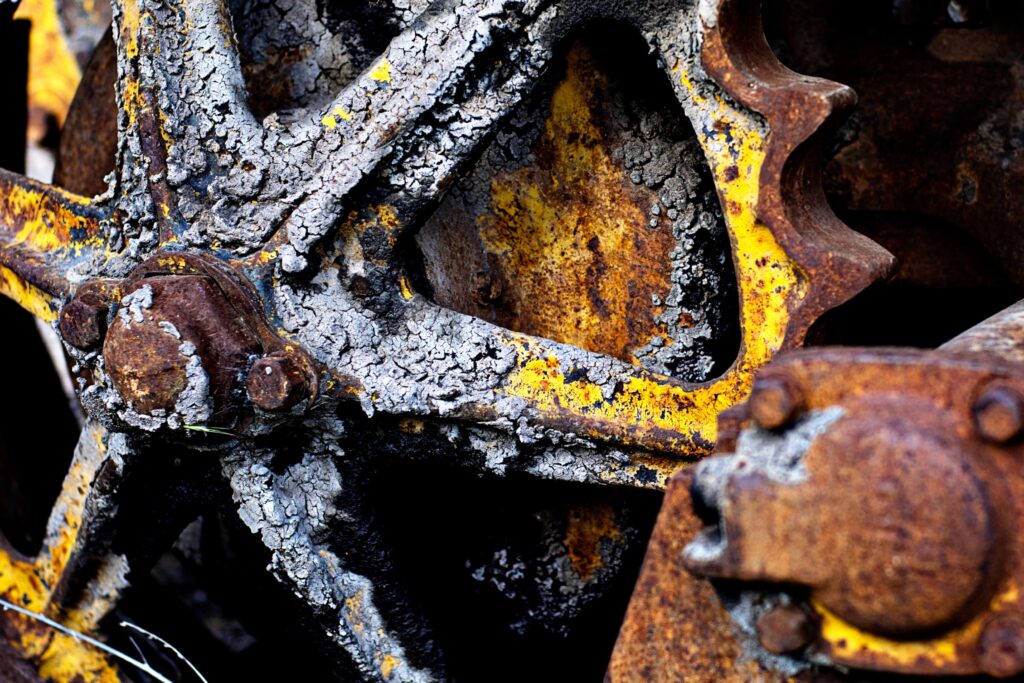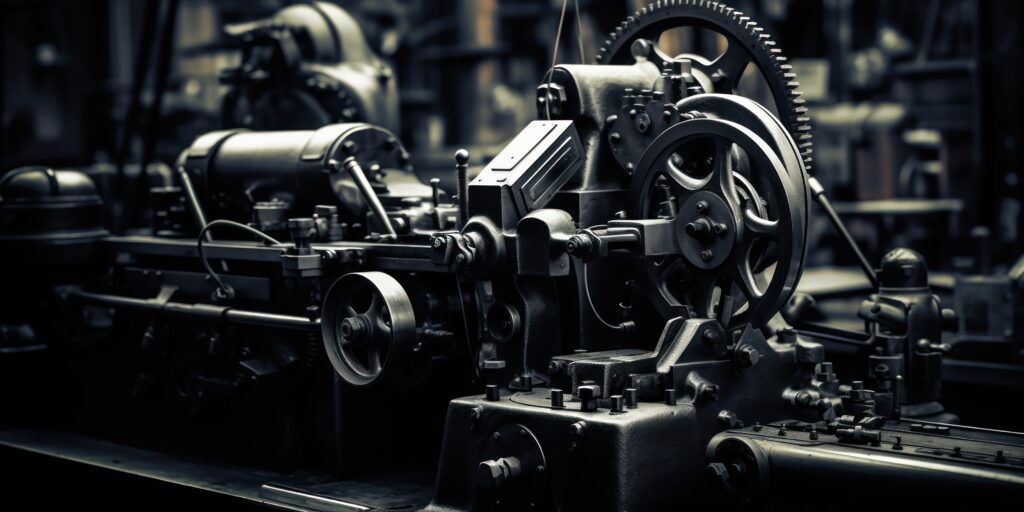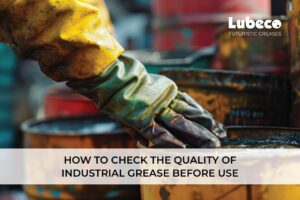Heavy machinery is the backbone of industries such as manufacturing, construction, mining, and agriculture. To keep these robust machines running smoothly and efficiently, proper lubrication is essential.
While there are several lubrication options available, high-quality industrial greases stand out as a reliable solution for maintaining heavy equipment. But why is investing in premium greases important?
Let’s delve into the five key benefits of using high-quality industrial greases in heavy machinery.
Why Are There Different Kinds of Industrial Greases?
Industrial greases are engineered to meet the diverse requirements of machinery and operating conditions across various industries. The differences in their formulations allow greases to excel in specific applications, ensuring optimal performance, protection, and efficiency.
Here are the key reasons why different kinds of industrial greases exist:

1. Diverse Operating Conditions
Heavy machinery operates in varied environments, such as extreme temperatures, high pressures, or wet and dusty conditions. Different greases are formulated to address these challenges:
- High-temperature greases withstand extreme heat without losing viscosity.
- Water-resistant greases protect machinery exposed to moisture or submerged environments.
- Cold-weather greases remain effective in freezing temperatures, preventing solidification.
2. Varied Load and Speed Requirements
The type of load and speed of the machinery influences the choice of grease:
- High-speed machinery requires low-viscosity greases that reduce friction and prevent overheating.
- Heavy-load equipment benefits from greases with extreme pressure (EP) additives to handle intense forces without breaking down.
3. Specialized Applications
Some industries require greases tailored to specific tasks:
- Food-grade greases are safe for use in food processing equipment, meeting regulatory standards for incidental food contact.
- Electrical greases enhance conductivity and protect sensitive components in electronic machinery.
- Anti-seize greases prevent galling and seizing in threaded components or assemblies.
4. Material Compatibility
Different machinery components, such as bearings, seals, or gears, may require greases with specific formulations to avoid material degradation.

5. Environmental and Regulatory Requirements
Certain greases are designed to comply with environmental regulations, such as biodegradable greases for eco-sensitive applications.
By offering a wide range of greases, manufacturers ensure that industries can select the right product for their unique operational needs, maximizing machinery performance and longevity.
5 Key Benefits of Using High-Quality Industrial Greases in Heavy Machinery
1. Enhanced Equipment Protection
Industrial greases provide a protective barrier that minimizes friction and wear between moving parts. This is especially critical in heavy machinery, where components operate under high loads and extreme conditions. High-quality greases offer:
- Superior Load-Bearing Capacity: Premium greases are formulated to withstand heavy loads, ensuring that machinery parts remain protected even under immense pressure.
- Corrosion and Oxidation Resistance: They create a protective film that prevents metal surfaces from coming into contact with moisture and oxygen, reducing the risk of rust and corrosion.
- Shock Load Protection: In environments where machinery experiences sudden shocks or vibrations, high-quality greases cushion the impact, preventing damage to vital components.

2. Improved Performance and Efficiency
Well-lubricated machinery operates more efficiently, leading to improved performance and productivity. High-quality greases ensure:
- Reduced Friction: By minimizing friction, greases lower the energy required for moving parts, resulting in smoother operation.
- Temperature Stability: Premium greases maintain their viscosity across a wide range of temperatures, ensuring consistent performance in extreme heat or cold.
- Optimized Energy Consumption: Lower friction means less energy is wasted, reducing fuel or power consumption and lowering operational costs.
3. Extended Equipment Lifespan
Investing in high-quality greases can significantly extend the lifespan of heavy machinery. They prevent premature wear and tear by:
- Minimizing Component Degradation: Advanced formulations reduce metal-to-metal contact, preventing abrasion and surface damage.
- Prolonging Lubrication Intervals: High-quality greases retain their properties longer, reducing the need for frequent reapplication.
- Reducing Downtime: With better protection and fewer breakdowns, machinery spends more time in operation and less in repair.
4. Cost Savings on Maintenance
While high-quality greases may come with a higher initial cost, they offer substantial savings in the long run. Here’s how:
- Lower Repair Costs: By reducing wear and preventing damage, greases minimize the need for costly repairs or replacements.
- Fewer Lubrication Points: Advanced greases provide long-lasting performance, reducing the frequency of lubrication and saving on labor costs.
- Prevention of Catastrophic Failures: Proper lubrication prevents unexpected breakdowns, avoiding expensive emergency repairs and production halts.
5. Adaptability to Extreme Conditions
Heavy machinery often operates in challenging environments, including high temperatures, high pressures, and exposure to contaminants. High-quality industrial greases are designed to handle such extremes by offering:
- Resistance to Contamination: Their thick consistency forms a seal that blocks out dirt, dust, and water, ensuring reliable performance even in harsh conditions.
- Thermal and Mechanical Stability: Premium greases do not break down under extreme heat, cold, or pressure, maintaining their lubricating properties in the toughest environments.
- Custom Formulations: Many high-quality greases are tailored to specific applications, ensuring optimal performance in unique operational conditions.
How to Choose the Right Grease for Your Needs
Choosing the right grease for your application is critical for ensuring optimal performance, minimizing wear, and extending the lifespan of machinery. Here’s a step-by-step guide to help you select the best grease for your needs:
1. Understand the Application Requirements
Begin by identifying the equipment and its operating conditions. Factors such as load, speed, temperature, and motion type (e.g., sliding or rolling) will influence the choice. For example, high-speed machinery requires low-viscosity greases, while heavy-load applications benefit from greases with high load-bearing capacity.
2. Consider the Operating Environment
Assess the working environment where the grease will be used. If the machinery operates in extreme temperatures, dusty conditions, or is exposed to water or chemicals, you’ll need greases with specific properties like high thermal stability, contamination resistance, or water repellency.
3. Check Compatibility with Materials
Ensure the grease is compatible with the materials of the machine’s components, such as seals or bearings. Incompatibility can lead to material degradation, reducing the equipment’s efficiency.
4. Evaluate Additive Properties
Look for greases with additives tailored to your needs. For instance:
- Anti-wear additives for reducing friction.
- Corrosion inhibitors to protect against rust.
- Extreme pressure (EP) additives for high-load conditions.
5. Follow Manufacturer Recommendations
Refer to the equipment’s user manual for specific grease types or grades recommended by the manufacturer.
6. Choose Trusted Brands
Invest in high-quality greases from reputable manufacturers that meet industry standards. Trusted brands ensure consistency and reliability.
By considering these factors, you can select a grease that optimizes performance, reduces maintenance, and prolongs the life of your equipment.
To Sum It Up
Using high-quality industrial greases in heavy machinery is an investment in reliability, efficiency, and longevity. These lubricants protect equipment, optimize performance, and reduce maintenance costs, ensuring smooth operations in demanding industrial environments.
Whether you’re in construction, mining, or agriculture, premium greases can significantly improve the productivity and lifespan of your heavy machinery.
By prioritizing the use of superior greases, you’re not just maintaining your machinery — you’re setting the foundation for long-term operational success.








